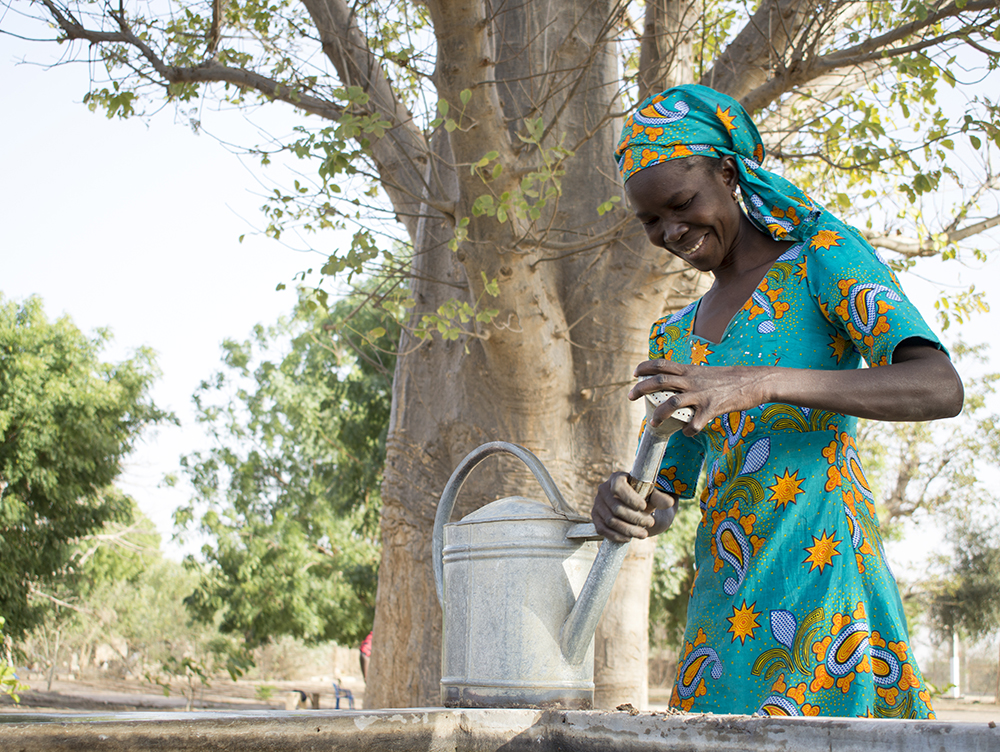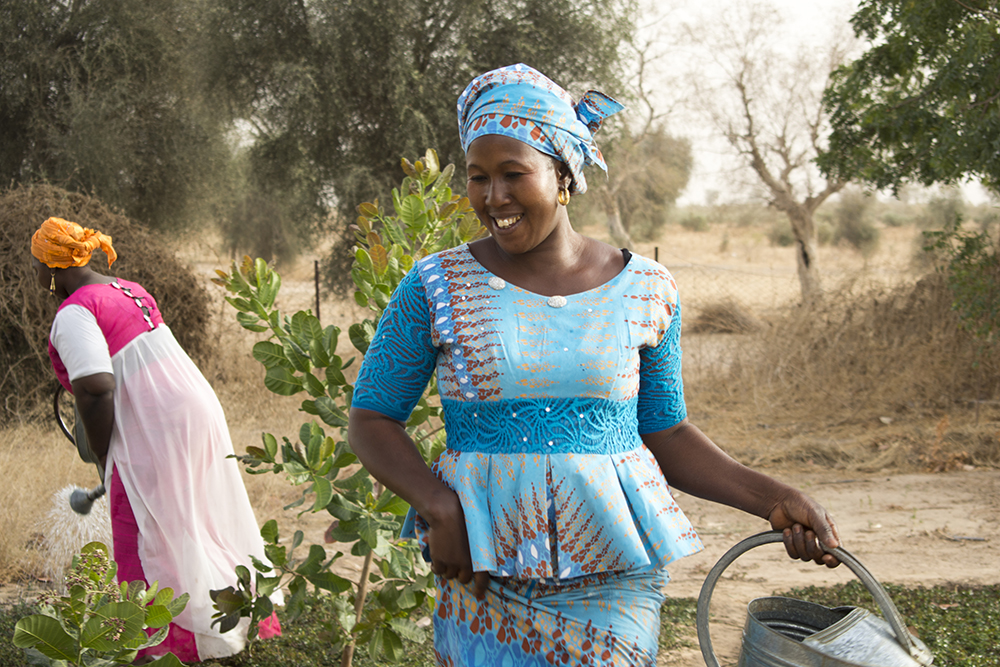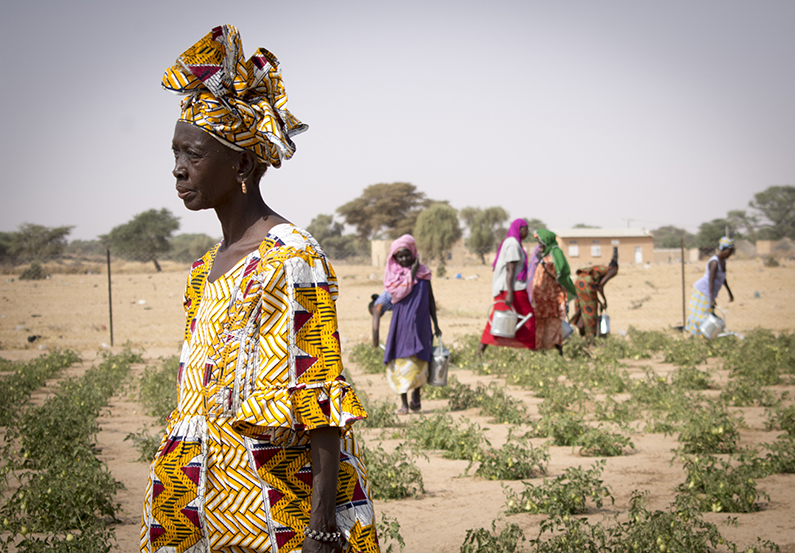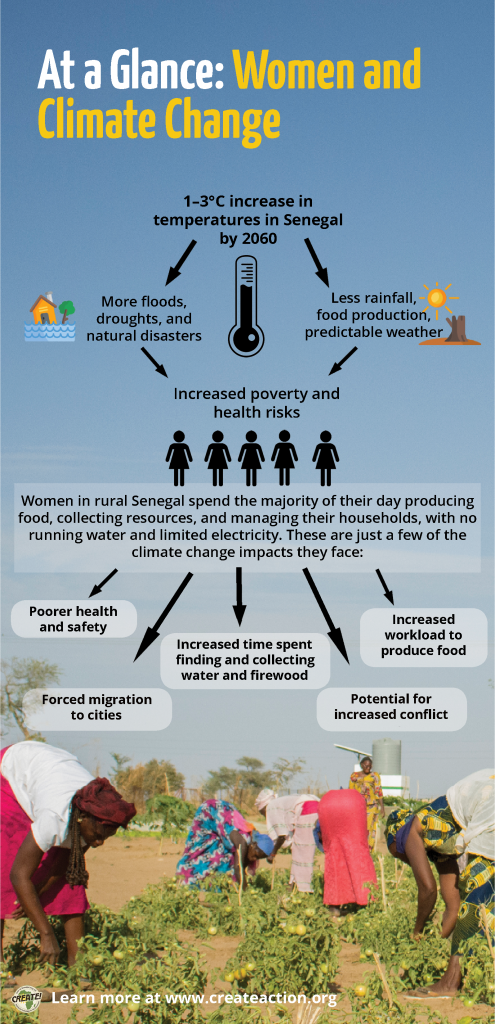In recent years, the topic of women and climate change has been gaining momentum across global discourse. But for the women in our partner communities in rural Senegal, it’s a very real issue that has been impacting their lives for decades.
Of the 13 million people in Senegal, over half live in rural areas, and over 30% live on less than $1.25 per day. With limited access to electricity and water, the rural poor are more reliant on (and vulnerable to) their environment and climate than those who live in the cities with easy access to resources and amenities.
But this is just the tip of the iceberg. The gender gap adds an extra variable to these challenges. Take a look at some of these numbers:
- 67.9% of women in Senegal are illiterate
- 66.8% of the unemployed population are women
- Women are twice as likely to perform unpaid labor as men
- Women constitute around 70% of the labor force in rural areas
- Women are less likely to have gone to school, and thus have fewer marketable skills for paid labor
- Although 70% of women are active in the agricultural sector (both paid and unpaid), they only own 13.4% of land
All of these factors contribute to the disadvantages women face in rural Senegal, but when compounded with rapidly changing environmental conditions, these challenges become even more serious. Since 1996, there has been a 35% decline in rainfall, reducing the (already short) 3-month rainy season. With 90% of agriculture dependent on rainfall, and a projected 1-3 degree C increase in temperature over the next 40 years, the impacts are increasingly devastating.
Because of all this, women face higher risks and bear a disproportionate burden of climate change impacts, especially in poor rural communities.

Aram Nguirane, president of the Walo cooperative garden, has led her group since they partnered with CREATE! in 2015 and worked to transform her village’s land from an arid desert to a shady green oasis producing hundreds of pounds of vegetables for the community all year long.
This is what motivates the work that we do at CREATE!. This is our “why” – why we do what we do, and why we are so proud of the women we work with who are standing up to the challenge. It’s also why it has been so exciting and gratifying to see the changes that are possible when we partner with women in rural villages.

Women in the graduated community of Diender are now running their garden cooperative independently. CREATE! technicians check in with the group on a weekly basis, but the women have continued to demonstrate their leadership and commitment, serving as great role models to women in newer partner communities.
Thanks to our exceptionally talented and enthusiastic team of field technicians who work to train women in these communities, we are seeing villages start on the path to overcoming food insecurity and water shortages in just a matter of months. By putting the power in the hands of local women – those who are most heavily affected by the compounded impacts of climate change and poverty — it’s amazing to see the solutions that can come about. By providing training, guidance, and a lot space for women to step up to the plate, we are seeing them utilize their local knowledge and expertise to improve their own lives and uplift their communities. Although women may be the most heavily impacted by climate change, they are also the solution. And we are so proud of the women in these communities who have embraced the challenges and risen to leadership, inspiring others and changing lives.


